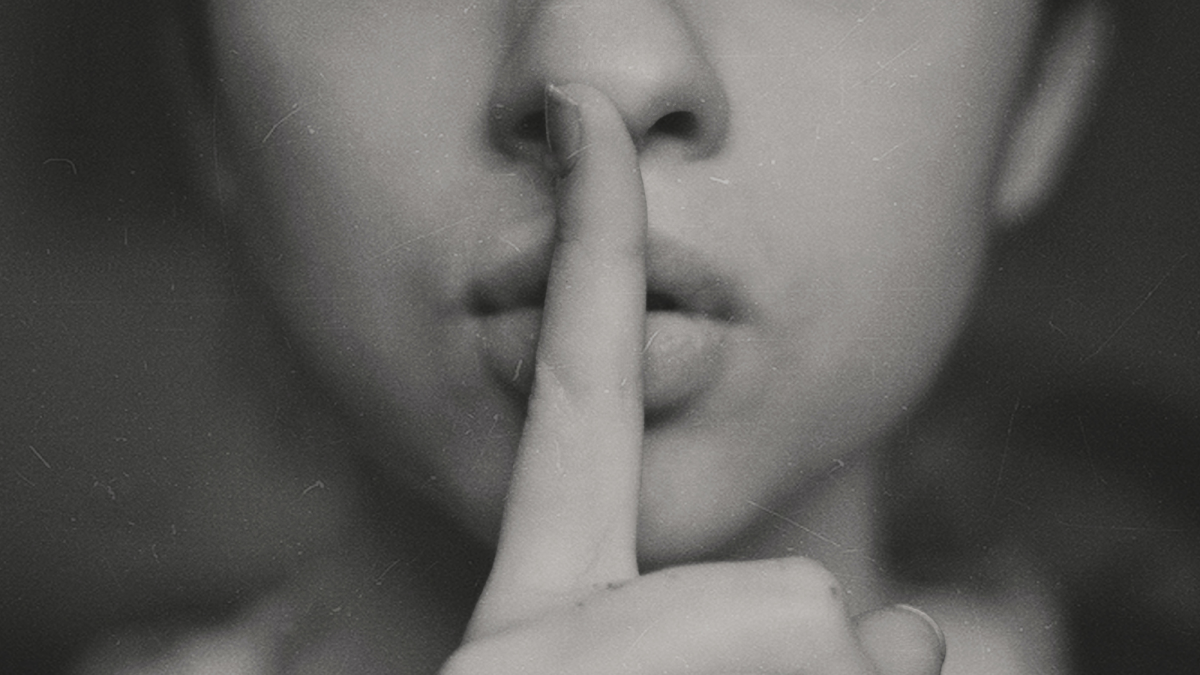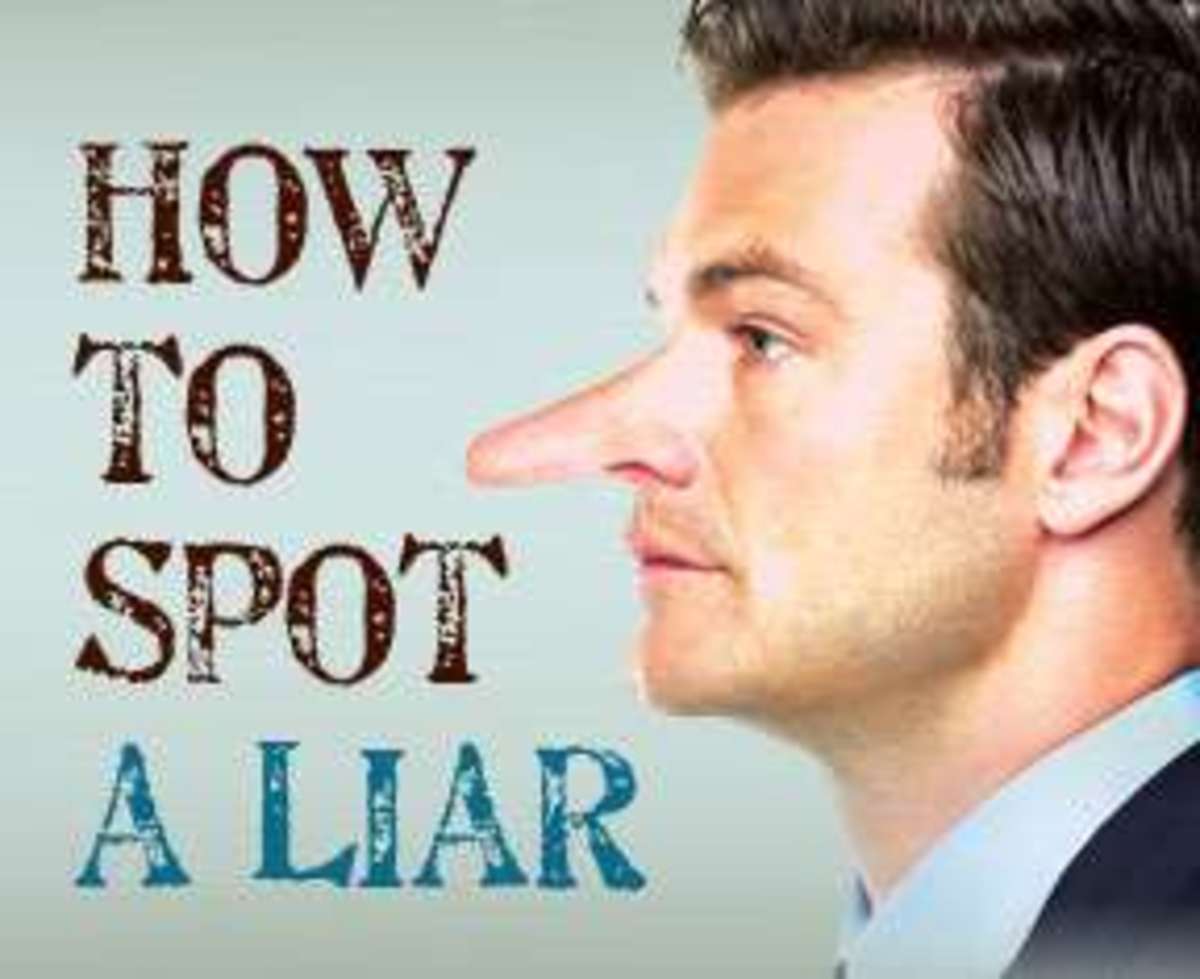How Can You Tell if Someone is Lying?
Humans Lie
Lying is very human - most of us do it from time to time throughout our lives, whether it is a noble lie to save someone's feelings or a self-interested one to save our own necks. In fact lying seems to be innate in humans and in evolutionary terms, probably has some survival value. Children do it quite frequently, in fantasy play and to avoid parental disapproval.
We've all seen those detective shows where the accused takes a polygraph and the lies are revealed or not, as the case may be. However in reality, polygraphs are a very unreliable method of revealing lies, which is one reason why they are not permitted to be used as evidence in a courtroom. The truth is, though it's not that easy. People are just as reliable, perhaps even more reliable than technology in weeding out a lie, especially those with training in psychology and interrogation. In the final analysis though, no matter how practised and confident we think we may be in the art of detecting lying, or how much scientific analysis we use, lies can be very hard to detect.
Using MRI cans, scientists can measure such variables as blood flow to the brain, they can detect eye temperature through thermal imaging and brain activity with ectroencephalograms but while science can measure changes in the brain it cannot as yet detect and isolate such a thing as deceptive brain activity.
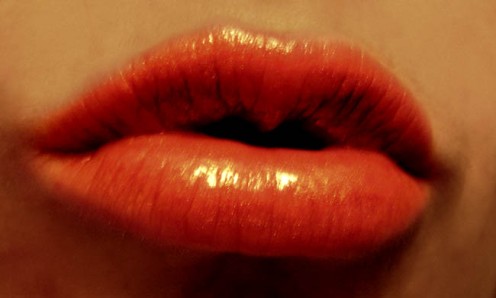
The Tell-Tale Signs of Lying - are there any?
Conventional wisdom has it that lies will reveal themselves through physiology and body language - tics, sweating, clammy hands, furtive looks, an inability to sit still or to look someone directly in the eye - however, things are a tad more complex than that. For example, some expert liars are perfectly capable of looking another person square in the eye with nary a droplet of perspiration forming on their brow.
The assumption many people make is that only liars act nervously when questioned but this is not true. People who are telling the truth can act very nervously when grilled, especially if there's an imminent threat involved, such as being arrested. Of course some people are just bad liars and in these people deceptive behaviour may be easier to detect but others are very skilled and can pull the wool over are eyes.
Are you a good liar?
So if we can't rely on body language, how can we tell if someone is lying? One strategy a group of psychologists at the University of Gothenburg in Sweden suggests is asking the person we suspect of lying to tell their story in reverse:
One way to do this is to ask your suspect to tell their story in
reverse. That should prove harder if they are hawking a fictional
scenario rather than retelling events they lived through and can
remember. Another is to ask for a drawing of the scene in question.
Liars find this harder, since they rarely rehearse the visuospatial
details of an invented scene. Or you could draw the person out on
details of timing. By asking questions on the exact chronology of
the supposed event, you may get details that expose the truth.
From Truth or dare: How to spot a liar
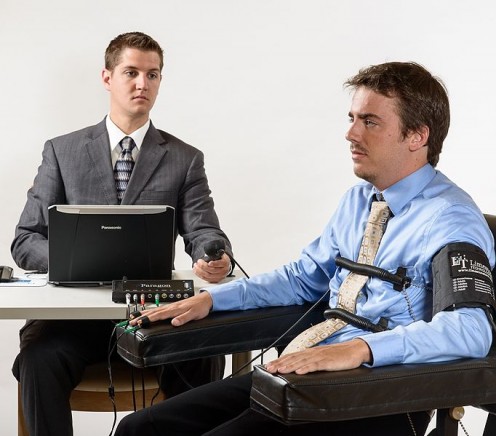
It may also be easier to detect lies in people we have known for a long time. We can measure any behavioural differences between the way they behaved when we knew for sure they were telling the truth against how they behave when we know they are lying.
Strangers are a more difficult proposition. Humans being a little naturally gullible, it often happens too, that we tend to believe people who are telling us what we might want to hear - in such cases we tend not to try too hard to detect a lie, in case we might be disappointed.
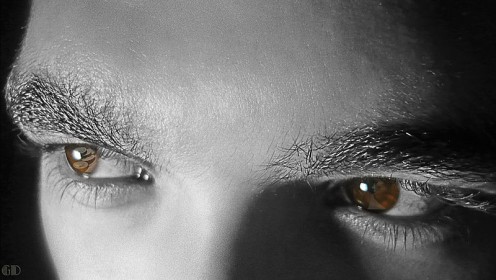
Lies are Everywhere
A truth told with bad intent, beats all the lies you can invent~ anon
In the natural world, "lying" or rather deception, is quite common: insects and reptiles are able to disguise themselves to look like a leaf or a rock in order to protect themselves and there are some spiders who are able to mimic the vibrations of other spiders in order to trap them. In the human world too,deception and lying is commonplace - we see it in relationships, salesmanship, in the workplace, in story-telling, in politics and in advertising - lies are woven into the fabric of our lives. Humans are darn good at it and learn to lie very early, so it's little wonder lies are hard to detect. Perhaps I even lied a little with the title of this article, giving the impression I could provide the reader with sure-way ways to detect lying. However a world without lying, where everyone told the absolute truth all of the time would probably be untenable, a theme Ricky Jervais explored in his 2006 film, The Invention of Lying...
Lies and Effect
What a tangled web we weave, when once we practice to deceive ~ Sir Walter Scott
Although lying may be an integral and natural part of human existence, that doesn't mean it is always harmless and much depends on the intent. Lying can be exponential - one leads to another and lies told for self-gain, to exploit others can be devastating and on a large scale hugely destructive to human society. Apart from the external damage lies can cause, too much lying can be bad for us on a personal level, causing guilt, anxiety and depression. There seems to be a fine balance required between gentle lies which ease our existence and those that are destructive and damaging.
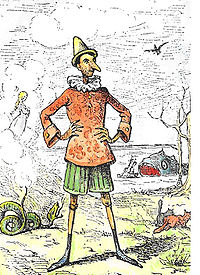
How good are you at detecting a lie?
Check out the following experiment via the Quirkology link below to watch the editor of the New Scientist describing his favourite film. There are two short video clips to view, one where he is lying and one where he tells the truth. 16,000 people took part in the experiment with a 70% success rate and those with a science background had a higher accuracy rate than those with an arts background. Can you pick which is which? By the way..I got it wrong! (Arts background) Maybe you'll do better.

